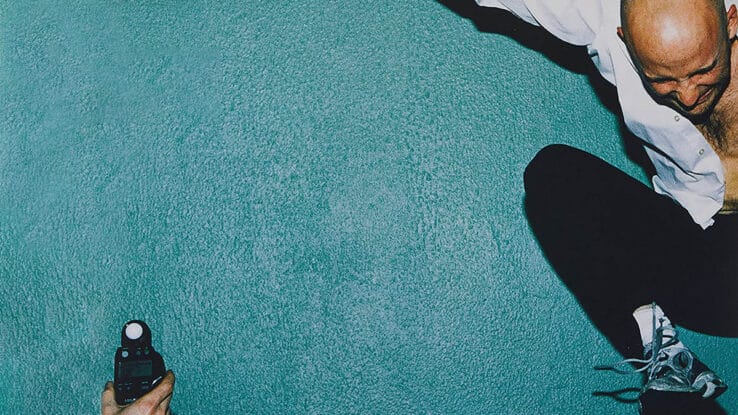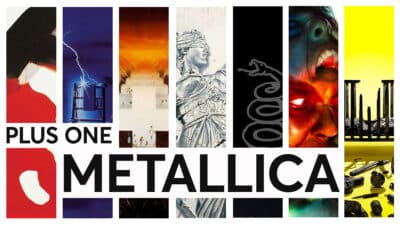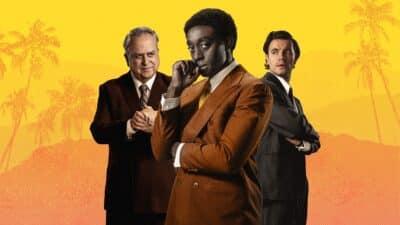Music

Looking Back
Play by Moby turns 25
As the biggest-selling electronica album of all time turns 25, we look back at Moby’s 1999 masterpiece, Play
Despite being one of the most influential and widely-owned albums of the last century, there was a period in the mid 90s where the future of Play, Moby’s fifth and most famous venture, was hanging by a thread.
In fact, following the release – and critical panning – of 1996’s Animal Rights, an homage to the heavy punk and hardcore scene Moby loved as a teenager (and a huge departure from his signature sound, which included 1991’s Twin Peaks-influenced banger ‘Go’), Moby was on the verge of quitting music altogether.
Luckily though, after reported mixing and label disputes, plus recording delays due to other touring commitments, Moby (real name Richard Melville Hall) managed to release Play in the May of 1999, and the cultural landscape of mainstream electronica changed forever as a result.
Fusing gospel, blues and roots with electronic music, Play’s downtempo aesthetic appealed to everyone, not just ‘dance people’. The first single release ahead of the album, ‘Honey’, hit the airwaves in late summer 1998, setting the tone for what was to come. Sampling the 1960 recording ‘Sometimes’ by American blues singer Bessie Jones, the layered handclaps and multi-instrumentation (recorded by Moby) sounded fresh in a late 90s dance landscape that had become saturated with disco samples. Smith’s vocal ached with a dark sexuality, while a crunchy breakbeat line and lush synth string arrangements tied up the loose ends. Groovy and complex, this was a far cry from the sludgy stylings of Animal Rights, and critics were right to have their interest peaked.
‘Honey’ didn’t chart as high as Play’s slew of subsequent singles, however it did offer insight into Moby’s new direction. It was the first released track to feature samples from Sounds Of The South: A Musical Journey From The Georgia Sea Islands To The Mississippi Delta (1993) – a selection of field recordings collected by folk archivist Alan Lomax – that Moby used to inform most of Play. Later singles ‘Natural Blues’ and ‘Find My Baby’ featured vocal samples from the same anthology (Vera Hall and Boy Blue respectively), while non-Lomax sampled tracks such as the mournful ‘Why Does My Heart Feel So Bad’ celebrated the richness of early gospel recordings.
All in all, Play had a staggering eight singles released between 1998 and 2000, and despite a relatively slow start, eleven months after the album dropped it was selling over 150,000 copies a week. There was the music video for ‘Natural Blues’ that starred indie darling Christina Ricci directed by David LaChapelle.
Film and TV fame came next, with songs from Play being featured in a slew of commercials, and, significantly for the huge GAP year subculture pilgrimaging to the likes of Vietnam, Cambodia and Thailand, ‘Porcelain’, Play’s sixth single, was included in the cult 00s coming-of-age classic, The Beach (starring Leonardo DiCaprio and directed by Danny Boyle).
Play, like the battered copy of Alex Garland’s bestseller traded between teens wearing oversized beads and Thai fishing pants, became the unofficial soundtrack to a generation finding themselves at full moon parties across the world. Alternatively, it was thrown on when searching for something non-offensive to play at dinner parties. There was a chance your mum asked for a copy of ‘Play’ for Christmas. It was, for intents and purposes, a true cultural phenomenon. Everywhere you went, you were touched by Moby’s music.
Considering Moby had reportedly regarded Play as his last album and departure from the industry, he was apparently overwhelmed with its runaway success, telling Rolling Stone in 2009:
“I was on tour constantly, drunk pretty much the entire time and it was just a blur. And then all of a sudden movie stars started coming to my concerts and I started getting invited to fancy parties and suddenly the journalists who wouldn’t return my publicist’s calls were talking about doing cover stories. It was a really odd phenomenon.”
An often divisive figure with his bald head and intensely intelligent eyes (and proudly riding the vegan bandwagon long before it became mainstream), Moby has since spoken about the turbulence surrounding Play’s release. At the time of writing this, the album has sold over 12 million copies worldwide, and is very much ingrained in our collective psyche. Whenever ‘Run On’ comes on the radio, this writer is immediately transported back to 1999, anticipating the coming millennium while spending a pre-Uni summer working in a downtown Toronto record store. How could any artist follow such an overwhelming level of success, especially when the tracks seemed to hint at Moby’s inner conflict, a darkness that translated so beautifully into collective moments of joy?
25 years on, it’s actually wonderful to immerse yourself in Play. For the longest time, the album felt overplayed and inflated. However, now as we long to reconnect with the version of ourselves not spending every waking moment on a smartphone, revisiting tracks such as ‘Porcelain’ and ‘Why Does My Heart Feel So Bad’ awakens something within. Looking back, this was a time where many of us were living (as the youth like to say) our very best lives. Praise be to Moby for creating the perfect mixtape to backdrop them…









